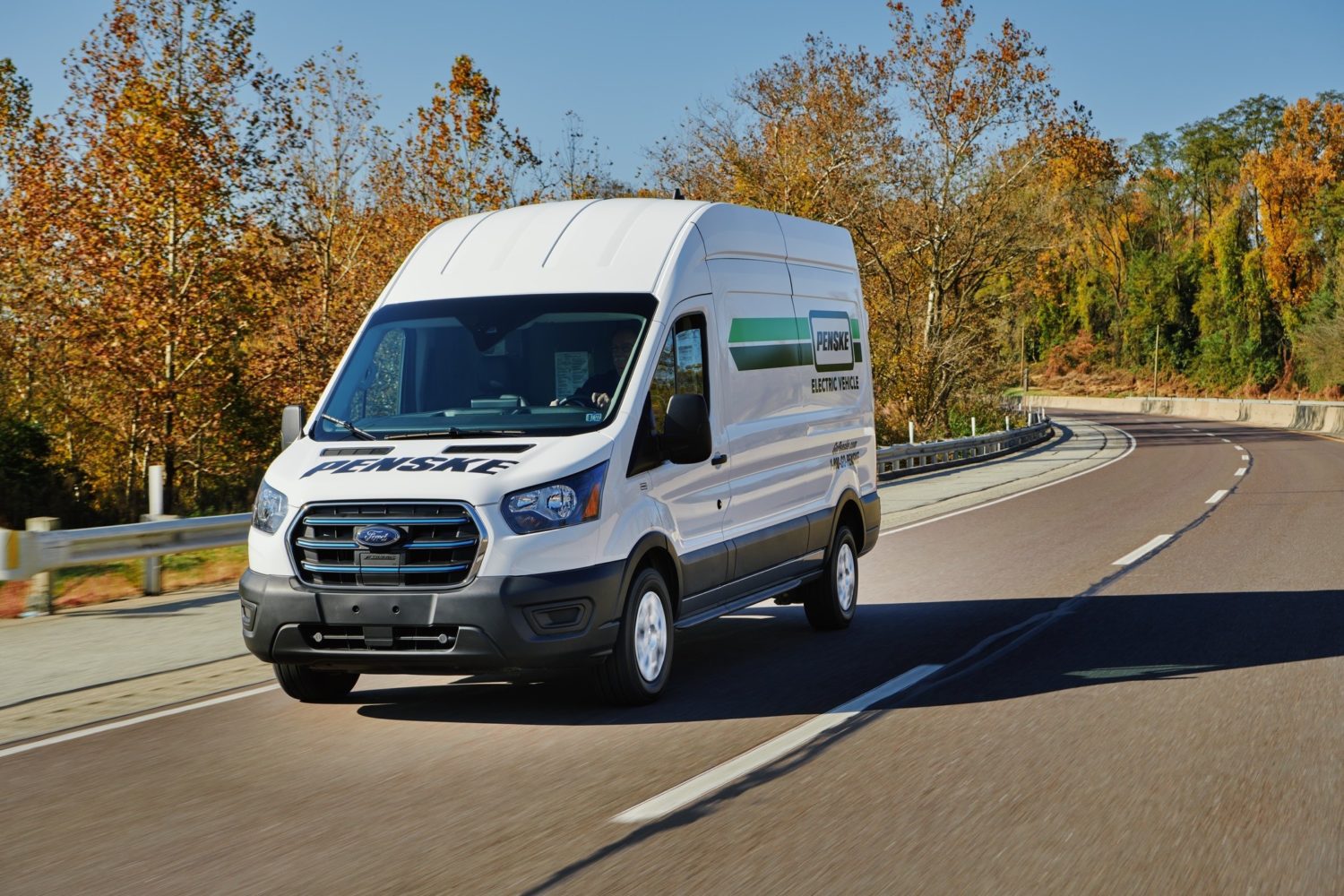
The trucking industry is evolving to embrace fleet sustainability in its many forms. Whether it’s utilizing clean alternative fuels to cut emissions, electrifying fleets, or strengthening the supply chain through strategies like smart vehicle maintenance and innovative technology, private and municipal fleets are increasingly deploying strategies that are both clean and cost-effective.
Penske Truck Leasing said on Monday it had ordered 750 all-electric Ford E-Transit cargo vans for its rental fleet. The decision to buy the vans came after successful pilot testing in Pennsylvania and are a response to customers seeking more sustainable rental options. The vehicles are expected to be available to customers in Southern California later this year, with the electric vans rolling out to other markets in phases.
In anticipation of Earth Day, Frito-Lay announced this week it will debut an initiative to include electric vehicles in its fleet this summer. The company will receive 40 electric trucks to deliver products in the Dallas-Fort Worth area. The switch is expected to contribute to reducing the company’s greenhouse gas emissions by approximately 390 metric tons per year. Frito-Lay said in a statement it is further decarbonizing its fleet through the nationwide use of renewable compressed natural gas and other zero or low emission vehicles.
Moving toward adopting an all-electric fleet is only one of many sustainability solutions, industry experts noted.
Carl Lisek is executive director of Drive Clean Indiana and executive vice president of Legacy Environmental Services Inc., which provides technical assistance to the public and private sectors, including fleet management services, to help incorporate sustainable practices into their operations. Lisek said in an interview that solutions like alternative fuel sources extend the life of fleets and finding ways to reduce emissions moves fleets toward greater sustainability. Now, he said, decisions must be based on practicality and cost-effectiveness.
“Six months ago, it was all about decarbonization,” he said. “Now some organizations are looking at keeping trucks on the road and maintaining them as a sustainability solution. The industry is in constant change.”
Vivek Bedi, CEO of ESOC Commercial Truck Inc., said his company’s environmentally safe oil change machines help with sustainability solutions by keeping truck fleets active and on the road, thereby improving a company’s profitability.
The ESOC system provides commercial trucking companies with a closed system that completely contains motor oil replaced during an oil change. Using a computerized system that quickly pumps the oil out of the engine into a container, and then replaces the exact amount of oil the engine needs, the system eliminates the need for cooling down the engine, reduces an employee’s time spent on oil changes, and eliminates wear and tear on the engine by providing a hot start.
“That engine is fully primed with oil, ready to go,” Bedi told Transportation Today. “There’s no metal on metal. That is a sustainability because everybody’s pushing their equipment farther. Now, we have customers that would change their vehicles out every 600,000 miles. That used to be in three years. Now they’re able to push that out and extend out the life of the vehicle.”
Because the used oil is contained and spill-free, it reduces the risk of environmental contamination and addresses operator safety concerns.
Other solutions can help fleets become sustainable in the short-term while they strategize for the long run, said Daniel Burrows, CEO and Founder of TruckLabs.
Burrows said fleet operators should develop a three-part plan to address sustainability: determine how the company can make an impact in the immediate future, decide how the company can test and implement sustainability goals over the mid-term, and set long-term company goals for future purchases.
“There are things we can do today that not only improve operating costs but puts fleets on the pathway to transition to electric in the future,” he said in an interview.
For instance, TruckLabs found that addressing aerodynamics can impact sustainability goals. The company said that by closing the gap between the cab and a truck’s trailer at highway speeds, operators can save between 4 and 6 percent on fuel. The company’s research found that if half of all class-8 trucks adopted aerodynamic technologies, it would cut national fuel consumption by 2.25 billion gallons a year, reducing CO2 emissions by 25 million tons annually.
“There is no one size fits all for trucking when it comes to sustainability,” Burrows said. “Each company has to look at what is the best solution for that fleet.”
The main motivator behind sustainability changes is evolving as well. Eighteen months ago, he said, the main motivation behind green solutions was cost-effectiveness. Now, with rising fuel costs and new directives happening across the industry, that’s no longer the case.
“These changes are not coming from the fleets, but from the fleets’ customers,” he said. “Customers want to know what the sustainability goals are.”
While the passenger vehicle industry moves toward electric cars, that’s not exactly the case for truck fleets, as the infrastructure to support electric trucks isn’t fully there yet.
“It’s a chicken and the egg situation,” Lisek said. “The lead time on (electric) equipment is taking longer, the infrastructure to support that equipment is taking longer, and the demand from utilities to have the energy available to support electric fleets is going to take time to build… Right now there are a lot of barriers, and a lot of lessons to be learned.”
Fleet operators are also looking at liquified natural gas, compressed natural gas and hydrogen-fueled systems as a path toward sustainability, he added.